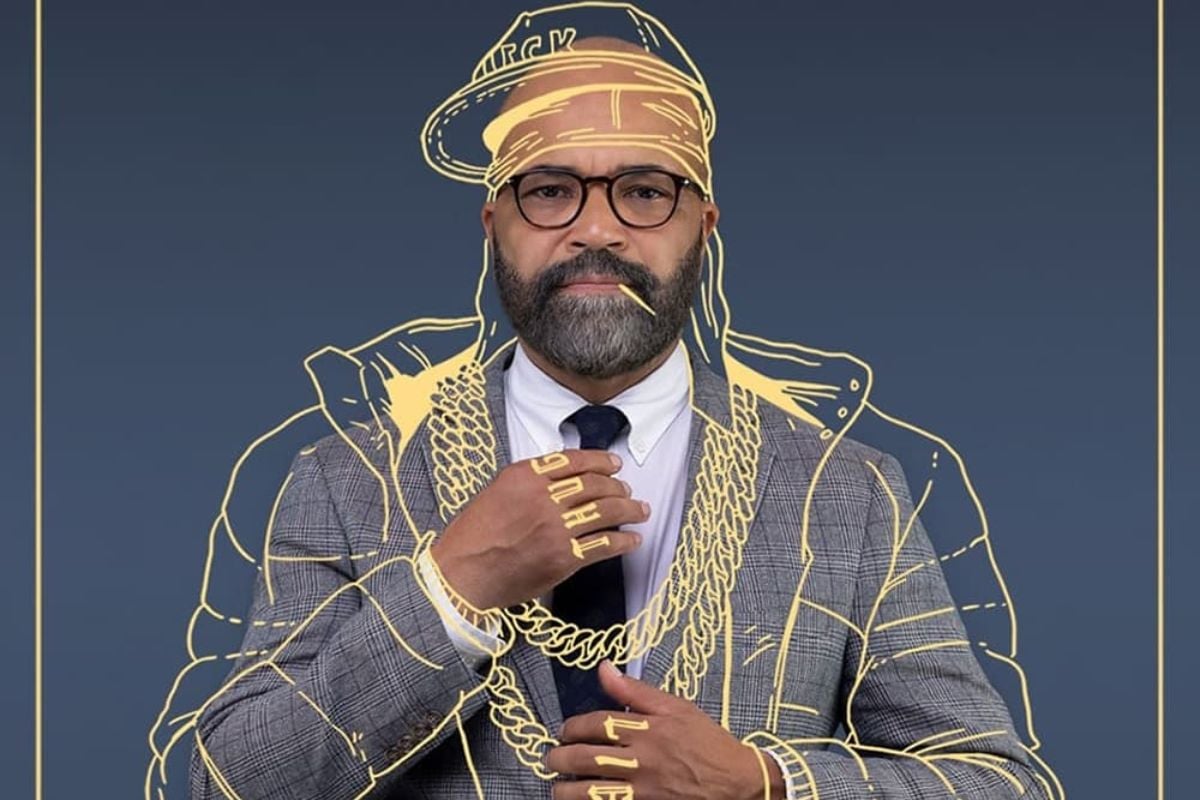Despite the source material for American Fiction having been published 20 years ago, the entertainment and publishing industries have only made marginal changes in the treatment of Black art and artists. It’s fortunate, at least, that cultural fascinations with slave narratives have waned. American Fiction has something to say about both.
Minor spoilers ahead for American Fiction
Tired of the pigeonholing of Black stories, Monk (Jeffrey Wright) writes Pafalogy under the pseudonym Stagg R. Leigh. This starts as a joke to let out some frustration while dealing with mounting familial and career issues. Monk’s My Pafology is a mishmash of everything non-Black people think of when they think of The Black Experience™. With My Pafology written in a drunken rage, Monk becomes livid by the positive response from publishing. That slowly subsides when the checks start rolling in. Soon, Hollywood comes knocking with a director who desperately hopes to adapt My Pafology.
A Quentin Tarantino-like figure (if the director cared more about awards), Wiley (Adam Brody) is enamored by Monk’s fake persona and sees the supposed convict (“Stagg”) as the real deal while fawning over Monk’s obvious lies. Between pitching himself as a white dude who “gets it” and beginning to adapt Monk’s forthcoming book, Wiley reveals a bit about his upcoming film called Plantation Annihilation.
This is one of many swings American Fiction takes at cultural institutions’ fascination with slave narratives. There’s nothing wrong with films about enslavement, and honestly we need more of them from different perspectives. However, these remain one of the few types of Black stories to get funding and prestige; a vehicle for liberal institutions to pat themselves on the back. Monk’s publishing agent Arthur (John Ortiz) outlines this phenomenon in another different scene. “White people think they want the truth, but they don’t,” Arthur says. “They just wanna feel absolved.”
Plantation Annihilation
Wiley’s story is a wacky combination of award bait and Blaxploitation. Set during a present-day plantation wedding, Plantation Annihilation features the former enslaved people rising from the dead and murdering the wedding guests. (I doubt Wiley considers this, but zombies are intertwined with slave history.) At one point, the director giddily describes to Monk an early scene of Ryan Reynolds getting murdered by an afro pick.
Please note, I have no idea where the weapon comes from in Wiley’s movie. The styling tool itself came from Nigeria in the 1960s, but I doubt that a guest attending a plantation wedding would have one on-hand. The pick detail could just be another layer to show this type of ignorance through Wiley. However, the peak of the joke is the selection of Reynolds as a victim of Black slave ghost terror. That’s because Ryan Reynolds and Blake Lively infamously married at the Boone Hall plantation in 2012. Well, “infamous” once enough people realized that memorials to forced labor camps and dens of rape and torture shouldn’t be a hotspot for weddings and proms.
It wasn’t until a viral 2019 Color of Change campaign and several white supremacist atrocities were committed that the public opinion started to shift. That year, the organization successfully pressured many wedding planning sites and Pinterest to change their policies for promoting these venues. In August 2020, Reynolds and Lively apologized. Probably not wanting to cringe at their wedding photos, Reynolds told Fast Company the couple held a second “secret” ceremony elsewhere the year after the wedding.
It’s impossible to reconcile. What we saw at the time was a wedding venue on Pinterest. What we saw after was a place built upon devastating tragedy. Years ago we got married again at home—but shame works in weird ways. A giant fucking mistake like that can either cause you to shut down or it can reframe things and move you into action. It doesn’t mean you won’t fuck up again. But repatterning and challenging lifelong social conditioning is a job that doesn’t end
This jab isn’t the funniest joke in American Fiction, especially compared to the Roe v. Wade joke early in the film’s runtime. However, it has stuck with me and it doesn’t hurt to remind people that plantation weddings, proms, and Airbnbs are racist as hell.
(featured image: Amazon MGM Studios)










Published: Jan 25, 2024 12:32 pm